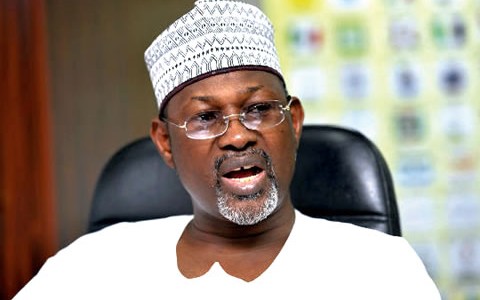When the Independent National Electoral Commission, INEC, de-registered 28 parties last week and 3 more this week, there was a feeling of relief, even joy which I felt as I believe the action of the electoral body was long overdue.
Inasmuch that there could never be anything as ‘too many political parties’, it was quite evident that the present parties did not justify their existence. Not only could they not abide by simple rules such as regular elections of national officers, holding national conventions and having a verifiable address for their party headquarters in Abuja, it was obvious that they existed only to collect the grants that INEC was previously giving to political parties.
Moreso, they never put out any candidates for any elections, and their use only came when a politician unable to get a ticket in a major party then hijacks them to satisfy his personal opinion. A clear example could be seen when the late Turakin Ilorin and godfather of Kwara politics, Chief Olusola Saraki, could not get his daughter to be the gubernatorial candidate of the Peoples’ Democratic Party, PDP, in the last polls. He then took control of a hitherto unknown party, the Allied Congress Party of Nigeria, ACPN, which was more than happy to hand the machinery of the party to him and his pockets.
The plethora of mushroom political parties which do not make any effort to make their existence known to the electorate, much less present candidates in elections, only serve to add to the confusion of especially less-elected voters at the polls. It is very easy to confuse the Peoples’ Redemption Party, PRP, and the PDP unless one is very conversant with their symbols.
But while deregistering mushroom political parties goes a lot in sanitizing our political space and allowing only the serious ones to exist, it also shows how bereft of ideology our political parties are. There is no differentiating between our major political parties save for the personalities that are active in them. One party’s manifesto is the exact copy of others; there is no policy that a party consistently advocates which it believes will change Nigeria; there are performers and non-performers in each of them.
While INEC cannot deregister political parties for a lack of ideology, the challenge goes to our politicians that a new way of building political parties is needed. It goes without saying that no party would reform itself at the risk of losing an election; but yet, it is about time that politicians begin aligning themselves based on common thoughts and values.
If indeed ideological politicians find the major parties at present to be stiff in their ways, there is no rule against them coming together to form a party that advocates their ideas. Such a party would have to be formed not for the sole aim of winning power, but by winning voters by the strength of their ideas and arguments. After all, the aim of politics is to debate ideas. Elections are but a way of measuring the acceptance of an idea.
In the end, I pray that this shall mark a new beginning in the way party politics operates in Nigeria.



Leave a Reply